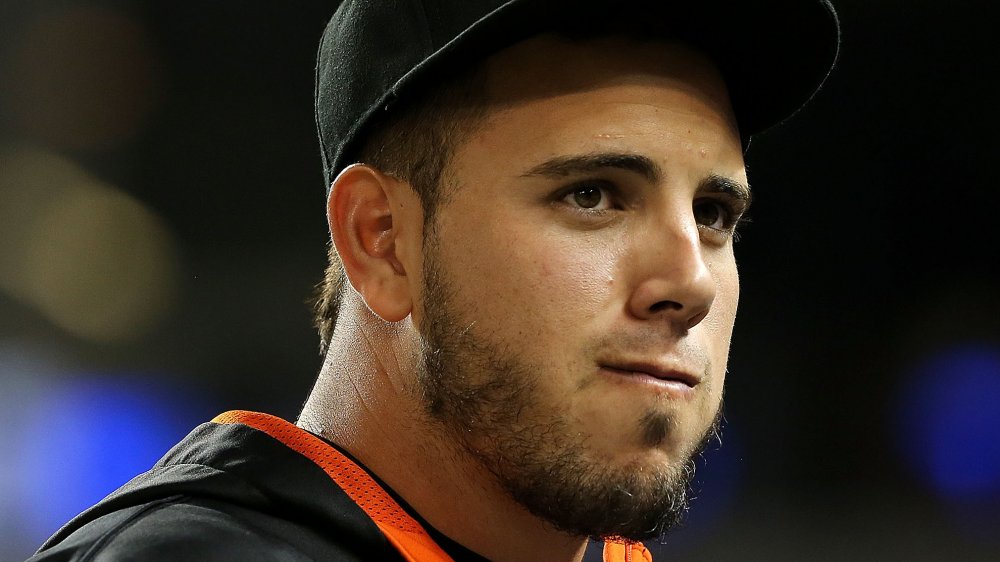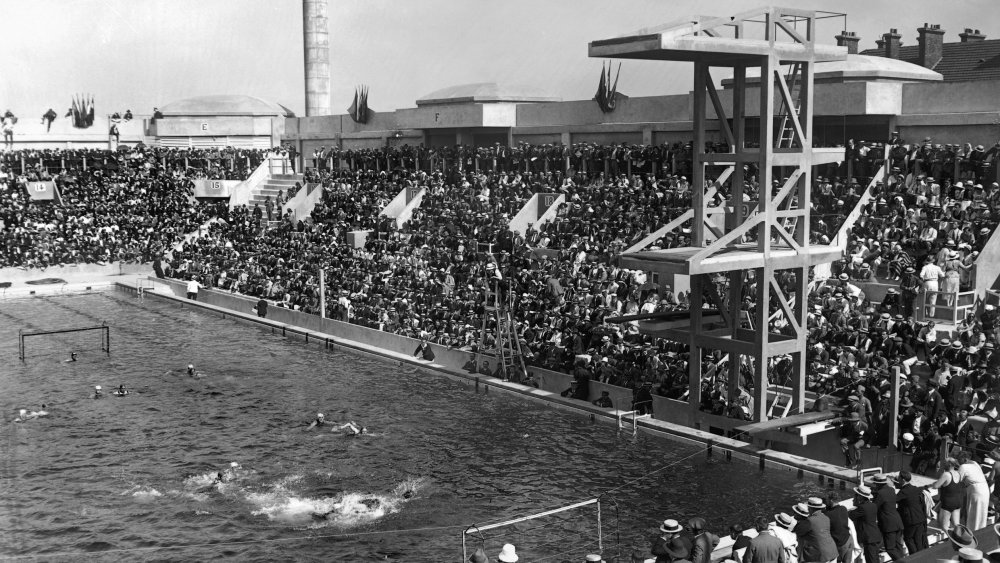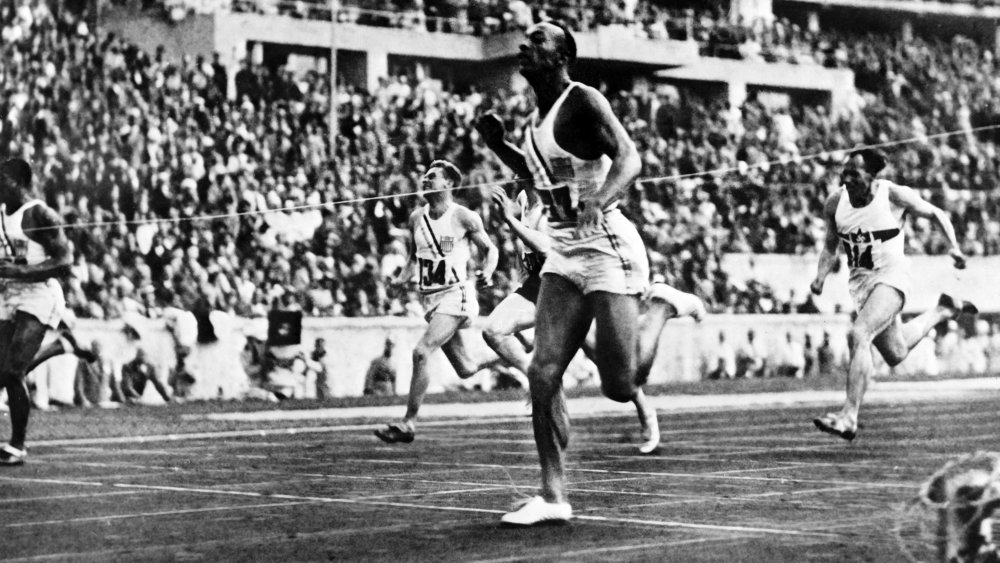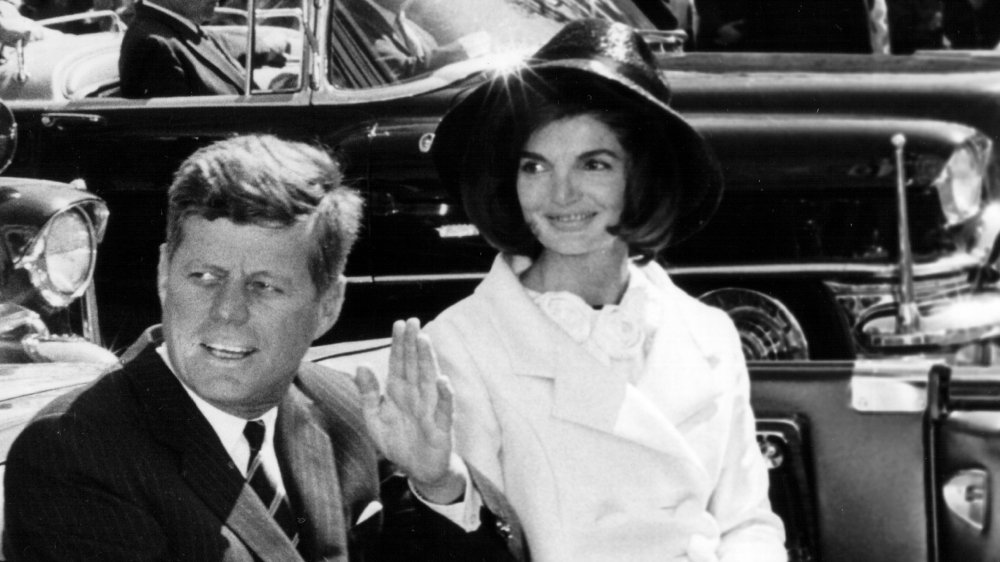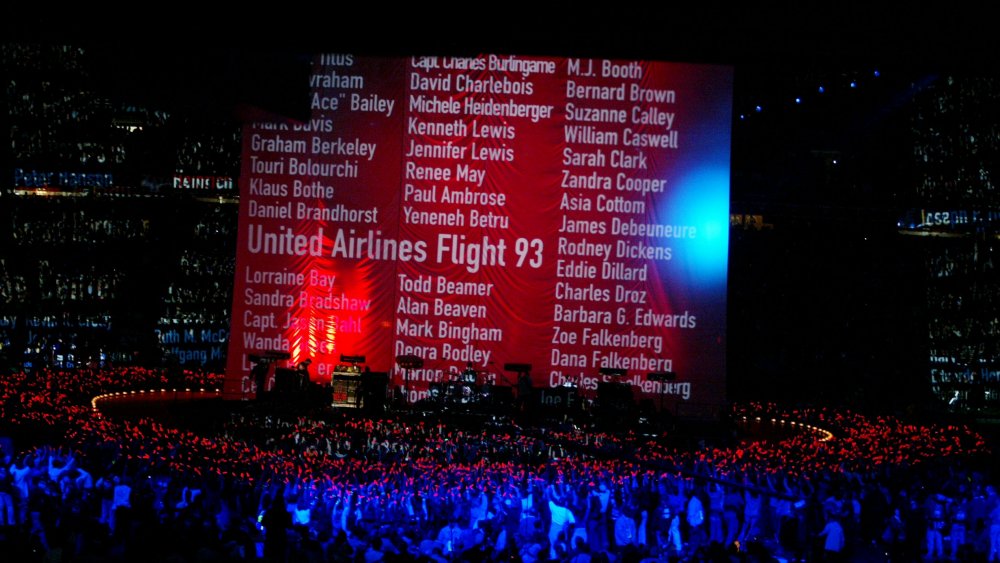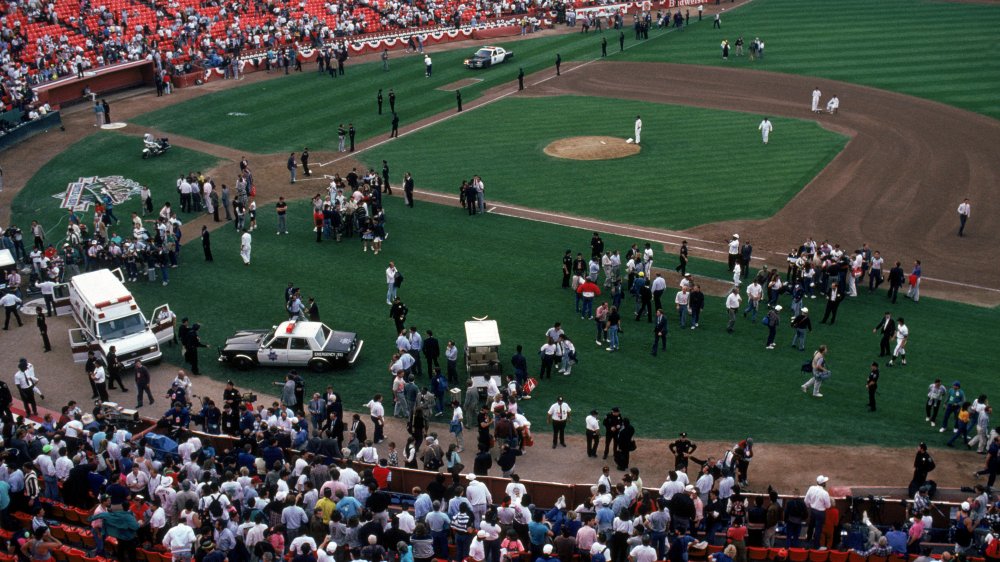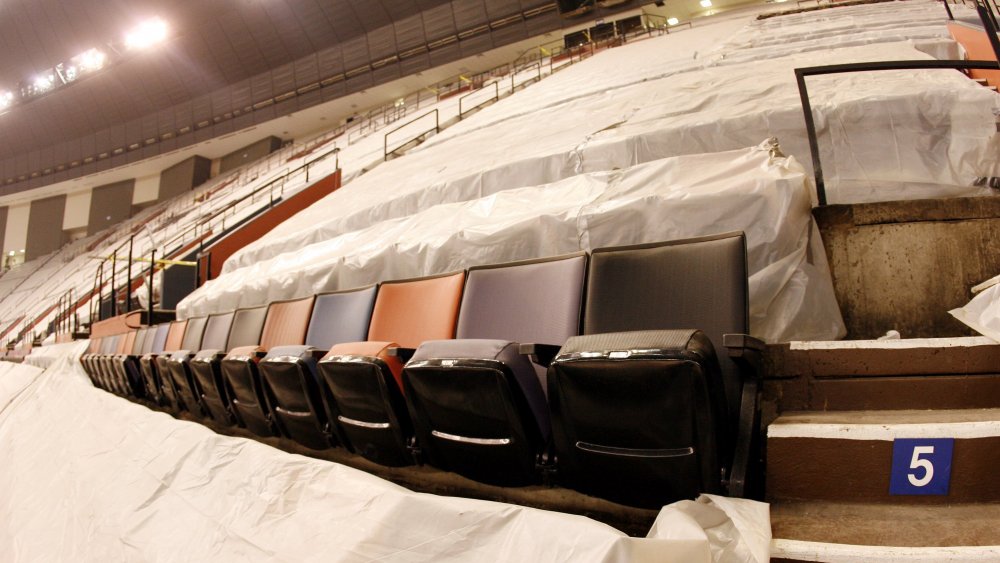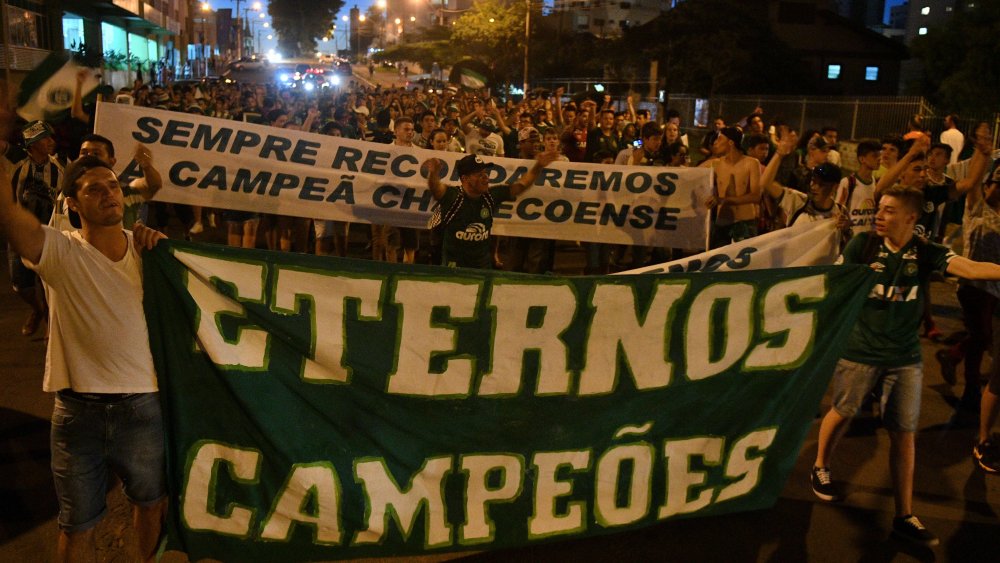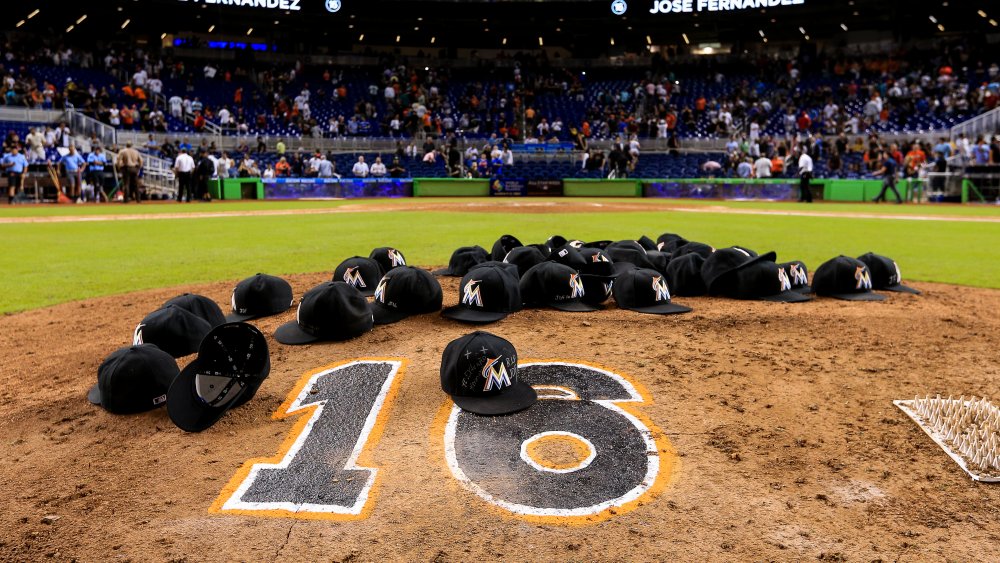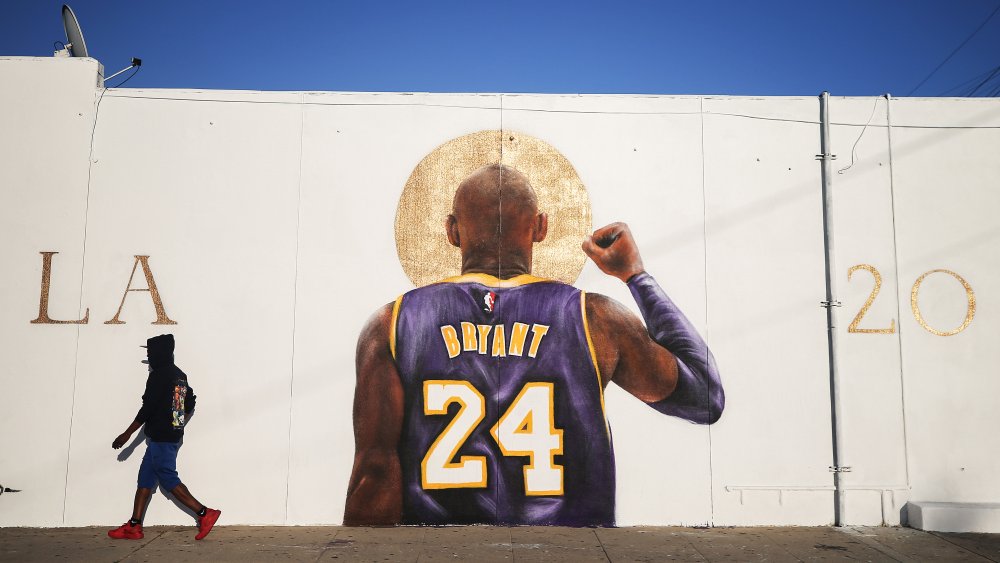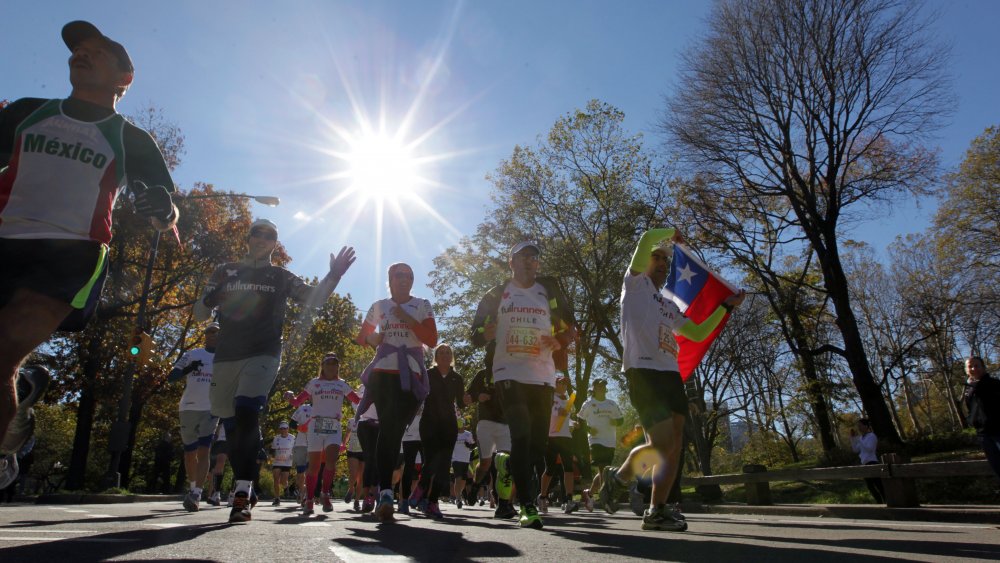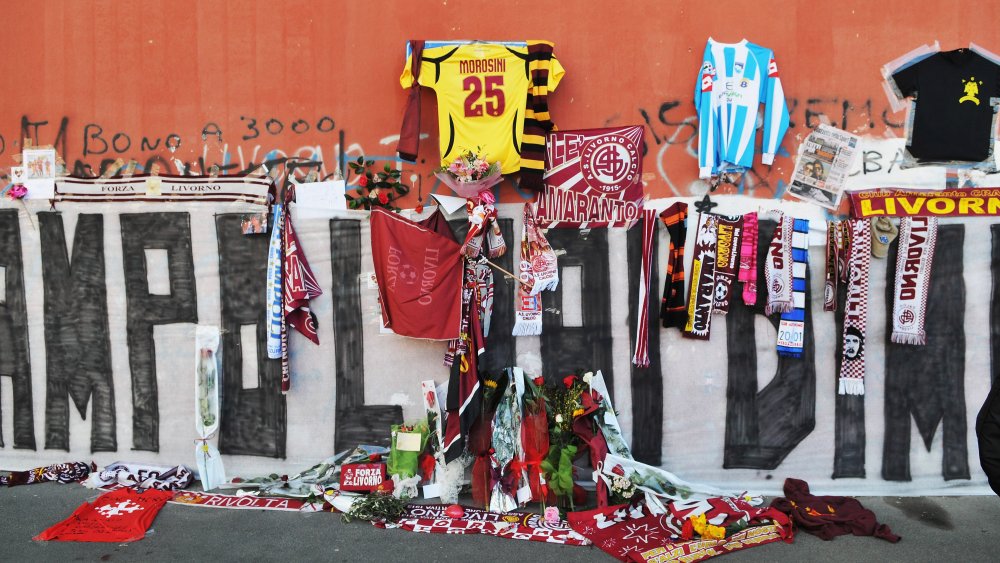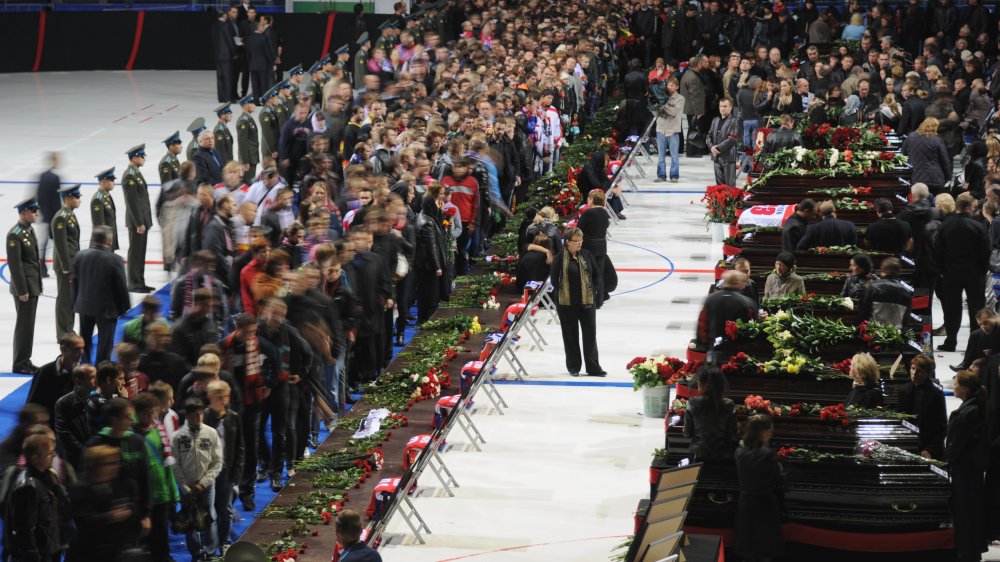Tragic Reasons Sports Events Were Canceled
Life is hard. That's just a fact. But thankfully, we've got sports to help us through the rough times. Watching athletes battle for supremacy can give us an escape from the harsh realities of the world. Seeing men and women demonstrate their phenomenal physical skills can allow us to heal. But every so often, things take such a tragic turn that the games simply can't go on.
Throughout history, devastating and unforeseen circumstances have majorly affected the world of sports, emptying stadiums of fans and affecting entire seasons. Sometimes, it's a major event like a terrorist attack. Other times, it's a more personal tragedy, like the death of a player. Regardless of the size and scale, these events have forced baseball teams, soccer leagues, and organizations like the NFL and NBA to press the pause button. From assassinations to natural disasters, here are the most tragic reasons why sports events have been canceled.
World War I changed the landscape of sports
Berlin was scheduled to host the 1916 Summer Olympics, and the city even constructed a new arena for the highlight track events. World War I began in 1914, though, and it became clear well before the summer of '16 that the Olympics couldn't go on as scheduled. Olympic activities resumed in 1920, but they didn't include German athletes. Per History, Belgian and French Olympic officials worked to ban potential German participants from being allowed to compete in both the 1920 and 1924 Summer Olympics. Strangely enough, 20 years after the canceled Berlin Games, that very city hosted the 1936 Olympics ... during the height of the Third Reich.
Of course, the Olympics wasn't the only sporting event affected by "the war to the end all wars." Baseball fans who've only read about those times may recall seeing that Major League Baseball didn't shut down during World War I. While that's true, the war unquestionably affected pro baseball around the country. According to the National Baseball Hall of Fame, the 1918 MLB regular season was shortened by 14 games (from 154 to 140) because of roster concerns and due to the public perception that baseball players were exempt from serving. Meanwhile, many minor league systems shut down entirely in 1917.
Pretty much everything was canceled thanks to World War II
The 1936 Summer Games held in Berlin — you know, the ones that were originally supposed to demonstrate the superiority of Nazi athletes until Jesse Owens came along and crashed the white supremacist party — were the last Olympics held for over a decade. According to History, the events of World War II resulted in the cancellations of the 1940 Summer Olympics (originally set to be held in Japan and then later in Finland) and the 1940 Winter Olympics (Germany). Because of the war, the 1944 London Summer Olympics and '44 Winter Olympics in Italy were also called off. But even when the war ended, that didn't mean everybody was immediately friends. When London hosted the 1948 Olympics, athletes from both Germany and Japan were prohibited from participating.
World War II affected other sports around the world. As noted by the official Huddersfield Town website, soccer clubs in England and Scotland had played a handful of games, at most, when their 1939-40 seasons were abandoned because of the war. According to the Rec.Sport.Soccer Statistics Foundation, the Football League, then England's top league, canceled after just three weeks. Both the 1942 and '46 World Cup tournaments were abandoned, and the website for the All-American Girls Professional Baseball League explains that many American men's minor league clubs were disbanded because of the war efforts. The Baseball in Wartime website claims only 12 minor leagues survived the war.
The assassination of JFK stopped all sports
One of the most controversial decisions in the history of sports occurred after the tragic assassination of President John F. Kennedy. Per Sports Illustrated, then-NFL commissioner Peter Rozelle decided that all of the league's games would continue as scheduled following that fateful day in November 1963. "Football was Mr. Kennedy's game," Rozelle explained in what became an infamous statement. In his later years, Rozelle wrote that choice was the worst of his tenure as league commissioner.
Needless to say, not all football went on as normal. According to AL.com, a majority of major college football games, including an anticipated showdown between Yale and Harvard, were postponed. And according to The Oklahoman, the American Football League went the complete opposite direction of the NFL, shutting down for the weekend following Kennedy's death. Ralph Wilson, the founder and owner of the Buffalo Bills, was instrumental in that decision, as he told AFL assistant commissioner Milt Woodard, "We cannot play these games."
Things also got serious over in the world of basketball. The Atlanta Journal-Constitution notes that the NBA rescheduled three games originally scheduled to be played on November 22, 1963, before the league resumed its normal schedule that weekend. And as for TV stations, well, the decision-makers at CBS decided they wouldn't air any NFL games over the weekend because of continuing coverage of the assassination.
9/11 impacted everything, including athletics
The terrorist attacks on 9/11 killed over 3,000 victims and impacted everything from geopolitics to the music industry. And of course, 9/11 also affected a plethora of competitions across the planet because they were scheduled to happen during one of the busiest sports months of any given year.
For example, Major League Baseball canceled games for nearly an entire week, which caused that year's Fall Classic to finish in early November. On top of that, the minor leagues canceled all playoff series. Week 2 NFL games were postponed to the weekend following the original Week 17. Major League Soccer, still in its infancy at the time of the attacks, canceled the end of its regular season and began the playoffs with spots clinched per the league standings as of 9/11.
Elsewhere around the globe, eight Champions League matches and over 40 UEFA Cup matches scheduled for later that September week were postponed. As noted by the BBC, those decisions were made both as "a mark of respect and in recognition of the terrible events in the United States" but also because of security concerns regarding the possibility of subsequent attacks. In fact, that fateful September day had such a monumental impact on athletics that, in 2018, the 9/11 Memorial & Museum introduced the "Comeback Season: Sports After 9/11" exhibit, which chronicles how sports helped New York City and the nation heal following the attacks.
The 1989 earthquake halted the World Series
The 1989 World Series between the Oakland Athletics and San Francisco Giants was meant to be known as the "Battle of the Bay" or the "Bay Bridge Series." But these days, everyone remembers it as the "Earthquake Series."
The competition between these interstate clubs started on October 14. Oakland held serve in the first two games played on home turf, and the A's surrendered only a single run across the opening 18 innings of the series. In other words, San Francisco needed some home cooking of its own on the evening of October 17.
However, everything changed about 20 minutes before the opening pitch of Game 3 ... but not in San Francisco's favor. That's when the Loma Prieta earthquake rocked the region and left devastation in its wake. Pregame television footage had already begun and documented the California quake, which rattled players on the field and, as explained by Grantland, terrified individuals who were in the clubhouses and heard what sounded like "a train coming through the door."
Because of understandable power outages, a police officer used his vehicle's PA to announce to those on the field that the game was postponed. Action didn't return to Candlestick Park until October 27, but the Giants did little to add interest to the on-the-field affairs. Oakland routed San Fran in Game 3 and then completed the sweep on October 28.
Hurricane Katrina affected NFL and college football
As college and pro football programs were completing final preparations for their seasons in late August 2005, Hurricane Katrina made landfall and caused a historic level of flooding. According to The Data Center, roughly 80 percent of the city of New Orleans was left under water because of the storm. As a result, the Superdome, home of the New Orleans Saints, became an emergency shelter for days, but it was also damaged by the hurricane.
Obviously, this majorly affected the American sports scene. As noted by ESPN, multiple college football programs were forced to change plans days after landfall. Five games in total were postponed. As for the players on Tulane Green Wave, they experienced quite the unique season, as the team played six home games in six different venues and 11 contests in 11 stadiums.
And things just kept on getting crazier and crazier. The 2005 Bayou Classic, New Orleans Bowl, and 2006 Sugar Bowl were all relocated from the Superdome. On top of that, the New Orleans Saints were also forced on the road throughout their 2005 season. New Orleans even had to play one "home game" versus the New York Giants in East Rutherford, New Jersey. As for the NBA, the New Orleans Hornets temporarily relocated to Oklahoma City until the franchise was able to return home on March 8, 2006.
The soccer community came together after the horrific Chapecoense crash
Unlike the more famous Brazilian clubs, Chapecoense was hardly a household name even among devoted soccer fans when, per ESPN, the team climbed up to Serie A and the country's top league in 2014. By the fall of 2016, however, the small team from Chapeco had become the Cinderella story and darlings of that season's Copa Sudamericana competition after it journeyed all the way to the two-legged Final versus Atletico Nacional.
But this fairy tale wouldn't have a happy ending. A couple of days before the opening leg, the charter plane carrying the Chapecoense players, coaches, and guests crashed in Colombia. In total, 71 people lost their lives in the accident, and as a result, the Final was canceled.
Mourners gathered at the home venues of both clubs on November 30 to honor the victims, and as explained by The Guardian, Nacional responded to the tragedy by asking the South American Football Confederation (a.k.a. CONMEBOL) to award the Copa Sudamericana title to Chapecoense. The gesture earned Nacional both the CONMEBOL and FIFA "Fair Play" awards.
While Chapecoense did well to stay afloat, thanks largely to players loaned to the club, they suffered relegation to the second tier of Brazilian football in November 2019, just one day before the three-year anniversary of the crash.
Jose Fernandez's tragic passing was absolutely heartbreaking
Miami Marlins pitcher Jose Fernandez seemed capable of becoming one of the best starters of the 2010s during his debut season in 2013. He made the All-Star Game that year, finished second in National League earned run average and third in Cy Young Award voting, and won Rookie of the Year. Three seasons later, Fernandez notched 16 wins and made his second All-Star appearance. He turned 24 years old in late July of that campaign.
But as the old saying goes, the flame that burns twice as bright burns half as long. And on September 25, 2016, Fernandez and two other men lost their lives in a boating accident that occurred early that morning. Miami was scheduled to host the Atlanta Braves later that same day, but the game was canceled before 9 AM local time. Since it wasn't necessary, the contest was never made up.
The following evening, the Marlins hosted the New York Mets for an emotional evening that included a lengthy pregame ceremony in honor of the young player. In the bottom of the first inning, second baseman Dee Gordon launched a pitch delivered by Bartolo Colon over the right-field wall for a leadoff home run. Miami defeated the Mets 7-3.
Kobe Bryant's death led to the Los Angeles Lakers canceling a game
On January 25, 2020, Los Angeles Lakers superstar LeBron James passed Kobe Bryant on the Association's all-time scoring list to move to third behind only Karl Malone and Kareem Abdul-Jabbar. Bryant took to Twitter to congratulate the three-time NBA champion. "Continuing to move the game forward @KingJames," Bryant wrote. "Much respect my brother."
The next day, Bryant, his 13-year-old daughter, Gianna, and seven other people lost their lives in a helicopter accident. Current and former NBA players, as well as other big names both in and out of the sports world, took to social media to react to the tragic and heartbreaking news. Meanwhile, the league decided to run every game planned for that Sunday as scheduled, and needless to say, the NBA's decision was widely criticized.
Following such reactions and knowing how those associated with the Lakers and Los Angeles Clippers felt about the matter, the NBA correctly postponed the game between those two sides that was set for January 28. Three nights after that rescheduled outing, the Lakers honored Bryant with a ceremony that lasted nearly a half-hour ahead of a game between LA and the Portland Trail Blazers. James, the face of the franchise, was the key speaker from the Lakers' roster.
Hurricane Sandy took the 2012 NYC Marathon from runners
Hurricane Sandy, commonly referred to as Superstorm Sandy, left much of the New Jersey and New York region in ruins. As mentioned by The New Yorker, significant sections of New York, as well as surrounding areas such as Hoboken, were without power and drinkable water for days — weeks, in some cases — after the storm made landfall in late October 2012.
Despite the devastation and dozens of deaths attributed to Sandy, then-New York mayor Michael Bloomberg repeatedly said that the NYC Marathon, scheduled for November 4, would go on as scheduled. Less than 48 hours before the planned start, however, Bloomberg came to his senses and called the race off.
What caused him to change his mind? Ask devout WFAN listeners in the area, and they'll tell you Mike Francesa deserves all the credit. The Sports Pope blasted Bloomberg with memorable rants that went viral across the country. "I was the loudest critic, but I think the mayor, understanding that there was a groundswell of unrest and criticism there, changed what would've been a very, very bad decision," Francesa told SB Nation. "So I know I was a very loud critic on that, and it's obviously flattering to give me a lot of credit. But I don't take that credit. I think the mayor just made a change."
All of Italian football shut down after Piermario Morosini passed away
Midfielder Piermario Morosini was featuring for Italian Serie B side Livorno on April 12, 2012, when he collapsed on the pitch in the 31st minute of a match versus Pescara. Those on the scene quickly realized he'd suffered a cardiac incident, and he was rushed to a local hospital. Per France24, he was announced dead on arrival. He was only 25 years old at the time of his tragic passing.
The Italian Football Federation (Federcalcio) acted immediately upon learning the heartbreaking news, as noted by The Guardian, and it canceled all matches across the top three tiers of the country's pro competitions. While Morosini wasn't a superstar who played for Juventus or any of the nation's other footballing giants, he had climbed up the ranks of Italy's national program from the Under-17 level to U21.
In the days that followed, the media wondered if more could've been done to save Morosini's life before he made it to the medical facility. As reported by ESPN, three doctors who treated him on the pitch were found guilty of manslaughter in September 2016, as they never even tried to use a defibrillator ... even though they had access to three of them. As a result, the doctors received suspended prison sentences.
The Lokomotiv crash devastated a nation
On September 7, 2011, the plane carrying the Lokomotiv Yaroslavl hockey team from the Kontinental Hockey League, Russia's top-tier hockey competition, crashed in Yaroslavl. Per the official NHL website, 44 people died in the accident.
As noted by RT.com, the KHL season opener between Salavat Yulaev and Atlant was interrupted in the second period of play so KHL president Aleksandr Medvedev could address everyone in the arena regarding the tragedy. The two squads then departed the venue.
League play was suspended until September 12, and it wasn't until December that a Lokomotiv team returned to the ice for competitive play. The club was allowed to join the VHL, Russian hockey's second tier, and an exception was made that playoff spots would be determined by the percentage of points won by teams rather than total points earned to allow Lokomotiv to "catch up" to sides that had been playing for months.
Lokomotiv returned to the KHL the following season and qualified for the postseason tournament. However, Lokomotiv lost 4-2 in its opening round of the seven-game playoff series.
